Search Results
Showing results 1 to 20 of 20
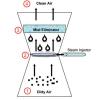
Washing Air
Learners observe and discuss a simple model of a wet scrubber, a device for cleaning industrial air pollution.

Cleaning Air with Balloons
Learners observe a simple balloon model of an electrostatic precipitator. These devices are used for pollutant recovery in cleaning industrial air pollution.

Pollution Patrol
Source Institutions
In this activity, learners explore how engineers design devices that can detect the presence of pollutants in the air.
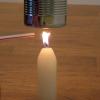
For Your Eyes Only
Learners build particulate matter collectors--devices that collect samples of visible particulates present in polluted air.

Heat Capacity: Can't Take the Heat?
Source Institutions
Why is ocean water sometimes the warmest when the average daily air temperature starts to drop? In this activity, learners explore the differing heat capacities of water and air using real data.

Let's Bag It
Learners observe and discuss a vacuum cleaner as a model of a baghouse, a device used in cleaning industrial air pollution.

Weather Vane
Source Institutions
In this meteorology activity, learners build weather vanes using straws, paperclips, and cardstock.
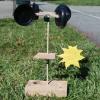
Weather Vane and Anemometer
Source Institutions
In this meteorology activity, learners construct simple devices to measure the direction and speed of wind.

Measure the Pressure: The "Wet" Barometer
Source Institutions
In this activity, learners use simple items to construct a device for indicating air pressure changes.

Measure the Pressure II: The "Dry" Barometer
Source Institutions
In this activity, learners use simple items to construct a device for indicating air pressure changes.

Draft Detectives
Source Institutions
In this two part activity, learners become draft detectives by constructing their own draft catchers to detect drafts around windows or doors.
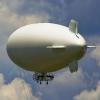
Sky Glider Challenge
Source Institutions
In this design challenge activity, learners use two helium-filled balloons to build a blimp that can travel in a straight path across the room.

Home Mycology Lab
Source Institutions
Agriculturalists have long considered mushroom growing a challenge, largely because you need a piece of benchtop equipment known as a laminar flow hood.

Wind Power: Creating a Wind Generator
Source Institutions
This lesson challenges groups of learners to design and construct a wind generator with the most electrical output.

Launch It
Add to list DetailsIn this design challenge activity, learners use a balloon and other simple materials to design an air-powered rocket that can hit a distant target.
Pollution and Lung Health
Source Institutions
Learners will build a lung model to understand how their lungs and diaphragm work to make them breathe.

Do Cities Affect the Weather?
Source Institutions
In this activity, learners explore clouds and how they form.

Touch Down
Source Institutions
In this design challenge activity, learners build a shock-absorbing system that will protect two “astronauts” when they land.

In the Toilet
Source Institutions
This activity explores the basic workings of a siphon, which is the core technology that makes toilets work.
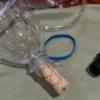
Water Rocket Launch
Source Institutions
In this activity, learners explore rocketry and the principals of space flight.
